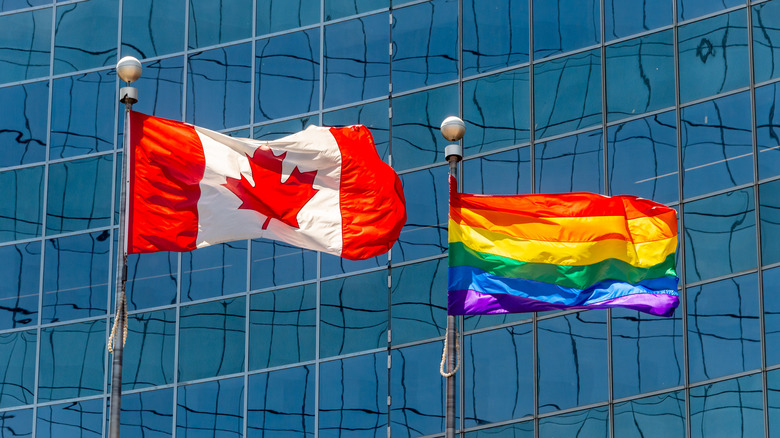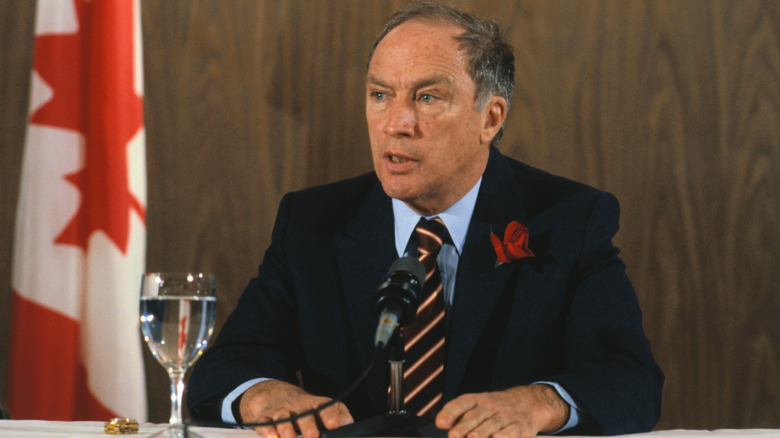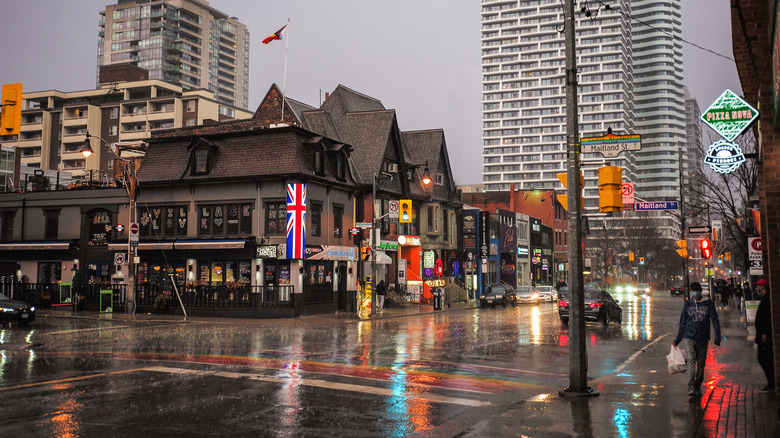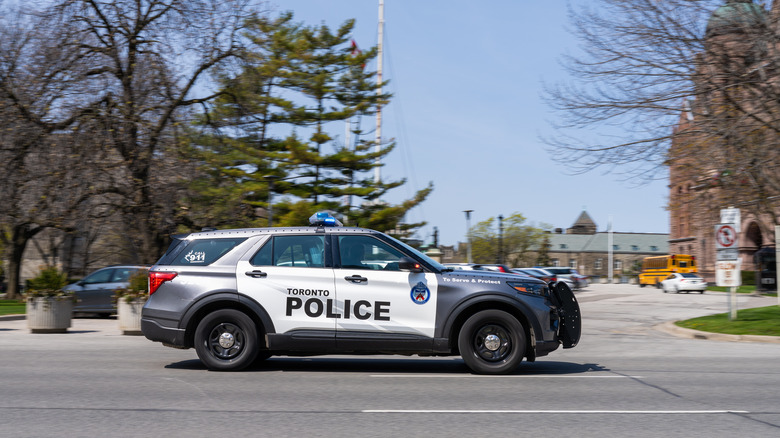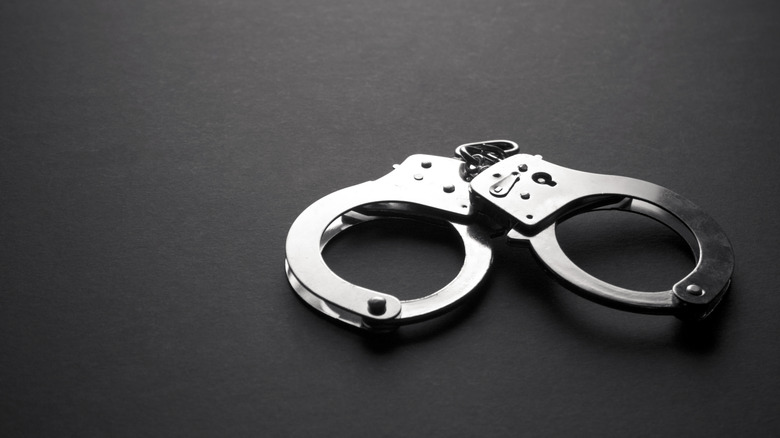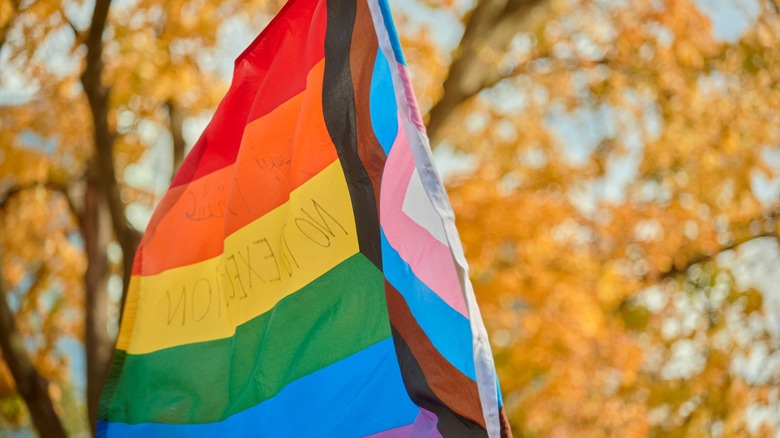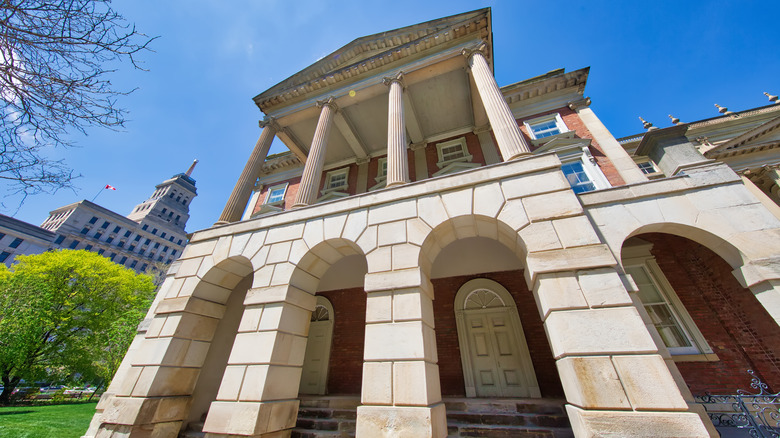Operation Soap: The Police Raids That Changed The Canadian LGBTQ+ Community Forever
Throughout the 20th century, queer people in Canada were discriminated against, assaulted, and demonized. And even when they adhered to the bigoted demand to restrict themselves to the private sphere, they still repeatedly faced police persecution.
The queer community in Toronto, Ottawa, Canada saw its face-off with the police in 1981 after a number of gay bathhouses were targeted by the authorities. In response to the brutality of the police and the unjust persecution, the queer community mobilized into the largest queer demonstration in Canadian history.
Although the protests didn't affect systematic change overnight, they demonstrated the solidarity of the queer community and their refusal to forgo their rights as human beings. The Toronto Pride Parade is even said to have its origins in the protests following the raids. This is Operation Soap, the police raids that changed the Canadian LGBTQ+ community forever.
The following article includes mentions of violence, murder, and sexual assault.
Decriminalizing homosexuality
Canada claims to have decriminalized homosexuality in 1969 with the Omnibus Bill, but all that the Omnibus Bill technically did was permit two consenting adults to be exempt from a gross indecency charge, provided that they were in private. And in fact, criminal prosecutions of homosexual behavior actually increased after the bill was passed.
People like Prime Minister Pierre Elliott Trudeau stated that "there's no place for the state in the bedrooms of the nation ... what's done in private between adults doesn't concern the Criminal Code," per "No Place for the State," edited by Christabelle Sethna and Chris Dummitt. But all this did was shutter homosexual people and relationships out of the public sphere and perpetuate the notion that it was shameful. And not only did this bill take no queer perspectives into account, the bill itself didn't even decriminalize homosexuality, which was still punishable by five years imprisonment.
After the Omnibus bill was passed, bigoted and heterosexist attitudes against the queer community persevered amongst the public and especially among the police. In 1979, a staff sergeant at the Metropolitan Toronto Police Association was quoted as saying, "This sickness or aberration [homosexuality] should never become a right," per "Never Going Back" by Thomas E. Warner. And the police routinely associated the queer community with crime, with one senior officer claiming that "wherever they go, crime does occur."
Homicides in the Village
At the end of the 1970s, there was a wave of violence against the queer community in Toronto's Gay Village, Toronto's queer community area near the intersections of Church and Wellesley Streets. Over the course of three and a half years, 14 queer men who were associated with the Village community were murdered. According to CBC News, the similarities in their deaths, including where they were last seen and the severity of the assault, led people to believe there was a serial killer targeting queer men.
But it wasn't the serial killings that caught the attention of the Toronto Police. It was the murder of Emanuel Jacques, a 12-year-old Canadian boy who was the son of Portuguese immigrants. Jacques worked as a shoe shiner on Yonge Street, and in August 1977, he was found dead on the roof of a sex shop after being sexually assaulted. Within a year, Robert Wayne Kribs, Joseph Woods, and Wener Gruerner were all convicted or pled guilty to murder, while Saul David Betesh was acquitted. In response to the murder, police started raiding massage parlors, strip clubs, and bathhouses where sex workers, patrons, and visitors of all orientations respectively worked and frequented. This led to an especially severe public backlash against the queer community as the media portrayed all queer men as violent pedophiles.
If you or anyone you know has been a victim of sexual assault, help is available. Visit the Rape, Abuse & Incest National Network website or contact RAINN's National Helpline at 1-800-656-HOPE (4673).
Bathhouse raids
During the late 1970s, police raids on bathhouses increased and many queer men found themselves being charged with gross indecency despite the fact that the Omnibus Bill protected consenting activity in private spaces. But according to "AIDS Activist" by Ann Silversides, the raids were justified by calling the bathhouses brothels.
After these raids, the queer men who were arrested suffered an onslaught of media coverage that perpetuated lies about their activities. In 1975, 17 men were arrested in Ottawa and accused of running a white slavery ring with over 100 boys as young as 11 years old. The media in Ottawa publicized all the names and addresses of those charged and as a result, many of them received hate mail and required psychiatric care or were fired from their jobs. One man, Warren Zufelt, died by suicide after appearing in court.
And because of the prevailing falsehood associating queerness with pedophilia, teachers who were arrested had their school boards informed by the police and many lost their jobs as a result. In total, there were 38 bathhouse raids in Canada, resulting in over 1,000 arrests, between 1968 and 2004. While a handful of these were due to an assault charge, the vast majority of men were charged with simply being found in a brothel.
[Featured image by Maksim Sokolov via Wikimedia Commons | Cropped and scaled | CC BY-SA 4.0]
Operation Soap
Around midnight on February 5, 1981, there was another raid on bathhouses in Toronto. But this time, police organized a mass raid on four different bathhouses: Romans, The Barracks, Club Baths, and Richmond Street Health Emporium. Anyone who was engaging in behavior ranging from masturbation to group sex was arrested.
During the raid, around 300 men were forced outside with their towels on and made to stand in the snow as they were arrested. This was the largest mass arrest since the 1970 October Crisis and is considered to be the fifth largest mass arrest in Canadian history. According to "Elder Abuse in the LGBTQ2SA+ Community" by Claire Robson, Jen Marchbank, Gloria Gutman, and Makaela Prentice, the police were physically and verbally abusive and some said "that they wished the showers were hooked up to poison gas or that the venue would catch fire." The police also deliberately destroyed the bathhouses with crowbars and sledgehammers, causing up to $35,000 worth of damage.
After the raid, the Toronto police repeated their claims that bathhouses were linked to organized criminal activity despite the fact that no evidence of such was ever revealed. Additionally, three men had their names reported to the school board officials for the schools where they worked as teachers, as was typically done, and in the media, the arrests were associated with that of another, unrelated, queer man who was arrested with child pornography.
Protests in Toronto
On the first night after the raid, thousands of people went out in downtown Toronto to protest against the treatment of queer people and police brutality in the city. With over 3,000 participants, this became the largest queer demonstration in Canada's history. Although the raids on the bathhouses weren't new, this mass arrest was part of the straw that broke the camel's back. It galvanized the community and "gave way to fury; women and men in the community went from disbelief to just rage ... Rather than letting that anger weigh us down — debilitate and demobilize us — we were able to channel it into a collective statement," Chris Bearchell recalls in Queer Events.
After the demonstrations, the Right to Privacy Committee (RTPC) sought to encourage tangible support for the queer community. Xtra writes that the RTPC fundraised for the defense of those arrested during Operation Soap in addition to advocating for the decriminalization of homosexual behavior. Although Operation Soap and its subsequent protests have been referred to by some as Canada's Stonewall, The Walrus writes how some attribute the 1977 raids in Montreal to be Canada's Stonewall, for as a result Quebec subsequently became the first Canadian province to forbid discrimination based on sexuality.
According to "Feminisms Matter" by Victoria L. Bromley, it's estimated that the investigation that led to Operation Soap and the policing of the protests cost $10 million.
Mostly acquitted
Over 300 men were charged with crimes ranging from running a brothel to buggery. The RTPC worked to provide defense lawyers for up to 36 people and the majority of them were acquitted of all charges. But although most of the men were acquitted of their charges, some people like Ron Rosenes pled guilty and paid a fine of $35, Now Toronto reports. But despite the law against brothels being repealed, there has been no expungement for those convicted under the law and people like Rosenes still have a conviction on their record up to 50 years later.
Interestingly, William Kaplan notes in "Why Dissent Matters" that Roy McMurtry, who was the attorney general who prosecuted the queer men after Operation Soap, later went on to approve equal marriage rights in the Ontario Court of Appeal as Chief Justice.
In 2016, Toronto police chief Mark Saunders issued an apology for Operation Soap, but the apology did little to repair the hundreds of lives that were irrevocably affected during the raids.
